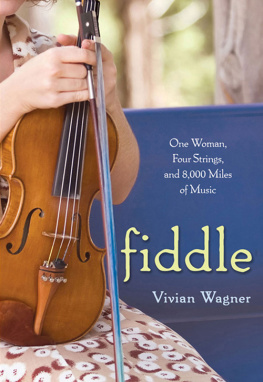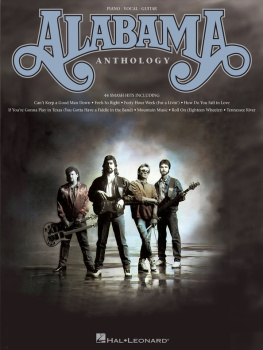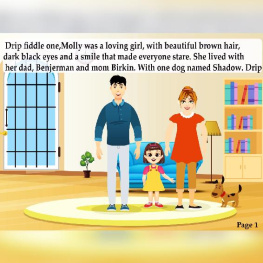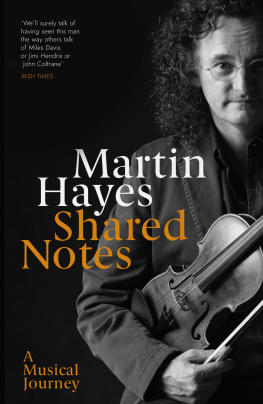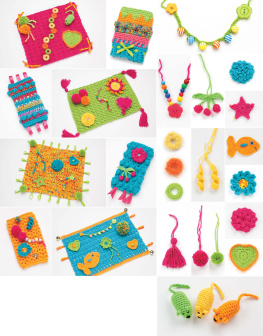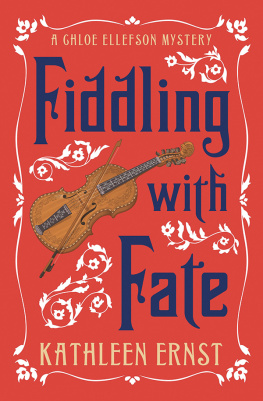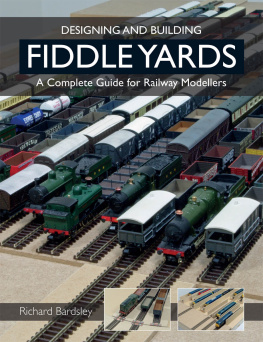Kensington Publishing Corp.
You must use the bodyits curves,
its hollows, the spring of the sound, which
brings back what is absent, what has
been and is now gone, fading.
Sheila Black, Violin
The earth keeps some vibration going
There in your heart, and that is you.
And if the people find you can fiddle,
Why, fiddle you must, for all your life.
Edgar Lee Masters, Fiddler Jones
Chapter 1
Learning to Play
M y mom always wanted me to play fiddle. Shed grown up poor, the daughter of a long line of pioneers with Scots-Irish and German roots who finally settled in Californias Central Valley in the 1940s. As she packed tomatoes into crates and milked goats, she listened to transistor radios playing country and bluegrass music, which often as not featured fiddling. After high school she left farm country for Los Angeles, worked her way through college, and earned degrees in math and statistics. On her climb upward, however, she took with her some of the culture ingrained since childhood. Growing tomatoes. Putting up jam. Humming tunes. And liking fiddle music.
Youre always playing Ba ch and Bee th oven, shed say to me when I was in high school. Why dont you play some fiddle tunes?
She pronounced the ch and the th as if shed never studied advanced German at UCLA. But somehow, pronouncing the names of German composers wrong was almost a matter of principle for her.
She did this with other words, too. Like wash. One time a friend made fun of how I said warsh instead of wash , and immediately I realized where this came from: my mom.
So that evening over dinner, when Mom said something about warshing the clothes, I corrected her.
Its wash, Mom, I said with all the superiority I could muster as a nine-year-old.
Her response surprised me. Instead of thanking me for my brilliance and changing her ways immediately, she looked at me, long and hard, her pale blue eyes like thin ice.
Finally, she said, Thats how I say it, and thats how its supposed to be: warsh.
And that was the end of it.
The fact is, though, I didnt know anything about fiddling. Id never heard it, and if Mom liked it, well, then, it must have been something pretty okie. Thats what my dad often called my mom, teasingly. Okie . I never knew quite what it meant, but it sounded pretty bad. Whatever it was, I didnt want to be it.
And anyway, I was a violinist.
Some part of me wanted to please my mom, though, to play something that she might like. So one day at the music store with my dad, I saw some fiddle books: Bluegrass Fiddle Styles, by Stacy Phillips and Kenny Kosek, and The Fiddle Book by Marion Thede. I asked him if he could buy them for me, thinking it might make my mom happy if I tried to play from them. Reluctantly, he agreed. He used his own allowance money, which came from his travel reimbursement checks at work, and paid $15 in cash for the two books.
When we got home, I showed my mom the books.
So lets hear some, she said. Go ahead and play.
Ill need to practice first, I said, shy and unsure of myself or fiddle music. I tried to make sense of the strange cross-tunings and notations in these books. I tried to understand how to play Cotton-Eyed Joe, Old Dan Tucker, and Tom and Jerry. But I didnt have any recordings of fiddle music, didnt know what it sounded like, and couldnt make much sense of this music. It all seemed so foreign to me, and I couldnt compare it to the watered-down classical music Id been learning in lessons and in the school orchestra. So the books stayed on the shelf in my bedroom, unused and forgotten, and I never did play any of those tunes for my mom.
My love of violin had started when I was seven and first heard Elaine Moreno playing. After school at the Navy ranch house of my babysitter, Mrs. Moreno, Id sit on the couch and listen to her teenage daughter practice. Elaine would swing her thick, glossy black hair through the air, twirling across the living room floor, smiling, at one with the music.
Whatever magic she possessed, I wanted.
So in fourth grade, when my teacher sent home a little pink mimeographed slip with information about the school orchestra, I begged my mom to let me play violin. She agreed, and I joined, dutifully carrying my rental violin back and forth to school, adding my interpretation of Hot Cross Buns and Jingle Bells to the cacophony of beginning violins, violas, and cellos.
During the summers after fourth and fifth grade, my mom signed me up for lessons with Miss Blakesley, who lived in the California desert town of Ridgecrest, where I went to school, in a trailer cluttered with music books, magazines, houseplants, and cat toys. In her living room window, an air conditioner kept up a continual, comforting whir. She taught the Suzuki violin method, starting with that anthem of beginning violinists everywhere, Twinkle, Twinkle Little Star, and its variations: taka-taka-ta-ka, and taka-taka-taka-taka. Eventually we moved on to Lightly Row and The Happy Farmer. Shinichi Suzuki developed the Suzuki method in Japan as a way to teach children music through immersion, saturation, and ear training, and it emphasized recitals and group playing. Miss Blakesley arranged regular, Suzuki-style recitals for her beginning students to play their pieces together in neat rows, but she also used the Suzuki music books to teach her students how to read music. And in her weekly lessons, we worked slowly but surely through Suzuki Book I .
I learned one main thing in these early lessons: violin is hard. To begin with, theres the way you hold the instrument and the way you hold the bow. Hold either one wrong, and your teacher will tell you, in no uncertain terms, that you will never be able to play beautiful music. So, wanting to play beautiful music, you focus on bending your thumb on the bow just so, placing your pinky just so, holding your left wrist just so, and bending your fingers onto the fingerboard just so. As soon as you focus on one, though, another inevitably goes out of whack. Bend your right thumb, and your left wrist creeps up. Hold your left wrist down, and your left fingers flatten on the strings, your right thumb straightens, and your right pinky flies off into space.

